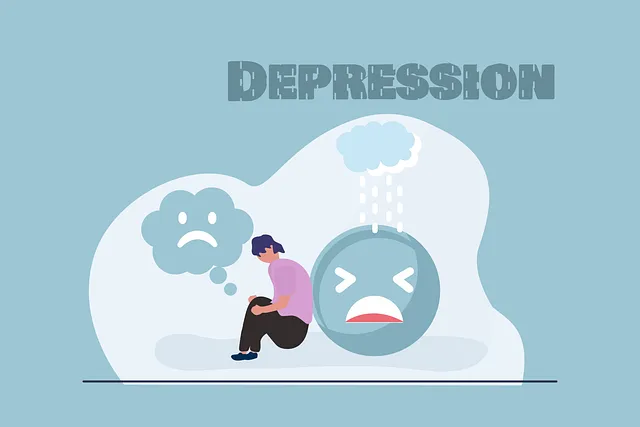The Boulder Kaiser Permanente mental health facility prioritizes emotion regulation as a key component of holistic well-being, utilizing evidence-based techniques like mindfulness and cognitive reframing. Through these methods, clients learn self-awareness, healthy coping mechanisms, and mental flexibility to better manage life's challenges and improve mental health outcomes. Comprehensive risk assessments and culturally sensitive practices ensure safety and efficacy in all treatments, empowering patients with tools for long-term success.
Emotion regulation techniques are vital tools for navigating life’s challenges. At Boulder Kaiser Permanente Mental Health Facility, we’ve pioneered innovative approaches to unlocking emotional well-being. This article delves into the significance of teaching these skills, offering practical strategies like mindfulness, cognitive reframing, and acceptance. By integrating these evidence-based methods, individuals gain lasting control over their emotions, fostering resilience and enhancing overall mental health—a cornerstone of our comprehensive care at Boulder Kaiser Permanente.
- Understanding Emotion Regulation: Unlocking Emotional Well-being at Boulder Kaiser Permanente Mental Health Facility
- The Importance of Teaching Techniques: Empowering Individuals for Long-term Success
- Practical Strategies: Effective Tools for Daily Life and Stress Management
- Incorporating Mindfulness, Cognitive Reframing, and Acceptance in Therapy Sessions
Understanding Emotion Regulation: Unlocking Emotional Well-being at Boulder Kaiser Permanente Mental Health Facility

At Boulder Kaiser Permanente Mental Health Facility, understanding emotion regulation is seen as a cornerstone for achieving and maintaining emotional well-being. This approach focuses on teaching individuals effective strategies to manage their emotions, enabling them to navigate life’s challenges with greater resilience. By employing evidence-based techniques, such as mindfulness practices, cognitive reframing, and stress management skills, clients at the facility learn to unlock the intricate relationship between thoughts, feelings, and behaviors.
The process of emotion regulation goes beyond mere suppression or avoidance of emotions. It involves fostering self-awareness, cultivating healthy coping mechanisms, and enhancing overall mental flexibility. This holistic approach is particularly crucial in today’s fast-paced world, where stress and anxiety can significantly impact an individual’s life. By prioritizing emotional healing processes, Boulder Kaiser Permanente Mental Health Facility not only aids in self-esteem improvement but also empowers individuals to navigate their emotional landscapes with greater ease, ultimately contributing to improved mental health outcomes. Furthermore, the facility ensures a comprehensive risk assessment for mental health professionals, emphasizing safety and efficacy in all treatment modalities.
The Importance of Teaching Techniques: Empowering Individuals for Long-term Success

Teaching emotion regulation techniques is a powerful tool that empowers individuals to navigate life’s challenges with greater resilience and self-awareness. This aspect is especially crucial within the context of Boulder Kaiser Permanente mental health facility, where professionals aim for long-term success in patient care. By equipping individuals with effective strategies, these techniques foster better emotional management, enabling them to cope with stress, anxiety, and even traumatic experiences more adaptively.
This approach not only enhances overall well-being but also contributes to personal growth by encouraging healthy coping mechanisms. For instance, integrating Conflict Resolution Techniques can help individuals manage interpersonal conflicts constructively, while Cultural Sensitivity in Mental Healthcare Practice ensures tailored support that respects diverse backgrounds. These teaching methods prove invaluable in fostering a sense of empowerment and self-efficacy, ultimately leading to improved mental health outcomes.
Practical Strategies: Effective Tools for Daily Life and Stress Management

At the Boulder Kaiser Permanente mental health facility, practical strategies for emotion regulation techniques teaching play a pivotal role in empowering individuals to manage daily life and stress effectively. These evidence-based tools are designed to help people identify and process their emotions, fostering mental wellness and emotional healing processes. Techniques such as mindfulness meditation, deep breathing exercises, and cognitive reframing enable individuals to cultivate resilience and improve their overall well-being.
Incorporating cultural sensitivity in mental healthcare practice is a cornerstone of these strategies. By understanding and respecting diverse cultural backgrounds, therapists can tailor interventions to meet the unique needs of each client. This personalized approach ensures that emotion regulation techniques are not only effective but also respectful and inclusive, enhancing the therapeutic experience for everyone at the Boulder Kaiser Permanente facility.
Incorporating Mindfulness, Cognitive Reframing, and Acceptance in Therapy Sessions

At the Boulder Kaiser Permanente mental health facility, therapists are integrating powerful emotion regulation techniques into their practice to offer patients comprehensive care. Mindfulness Meditation serves as a cornerstone, teaching individuals to focus on the present moment and accept emotions without judgment. This practice has been shown to reduce stress and anxiety, allowing clients to better understand and manage their feelings.
Cognitive Reframing is another valuable tool in the therapist’s arsenal. By challenging negative thought patterns and replacing them with more positive and realistic ones, patients can shift their perspective on difficult situations. This technique encourages a sense of acceptance and fosters a mindset conducive to emotional well-being. Additionally, accepting one’s emotions without resistance forms a crucial aspect of this therapeutic approach, enabling individuals to navigate life’s challenges with resilience and enhanced mental health awareness.
Emotion regulation techniques offer a powerful pathway to emotional well-being, as demonstrated by the successful programs at Boulder Kaiser Permanente Mental Health Facility. By equipping individuals with practical strategies like mindfulness, cognitive reframing, and acceptance, these techniques empower people to navigate life’s challenges effectively. Long-term success is fostered through self-awareness and adaptive coping skills gained from such teachings, providing a lasting impact on mental health and overall quality of life.



